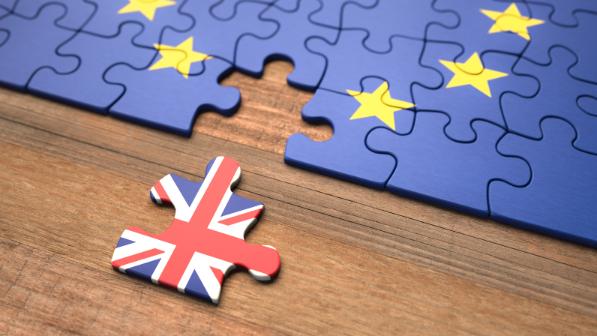This article is written by Meera Shah, from NMIMS School of Law, Navi Mumbai. The major focus of this article is the status of net neutrality in the United Kingdom post-Brexit and laws and regulations governing it.
Table of Contents
Introduction
The internet is built and functions on the idea of openness and easy exchange of viewpoints. Net neutrality is governed based on certain rules and principles which provides for the internet service providers to treat all the data fairly without blocking or slowing down the functioning of particular websites or data streams. The concept of net neutrality can be analogized to the working of telephones. While calling someone through a telephone line, we can call any number and be connected to the respective line within a few seconds and each connection would approximately take the same duration to connect as any other contact number. Hence the access to the numbers is neither blocked nor deliberately delayed unless it is forced by law. Also, telecom operators are bound by a set of rules and laws that compel them to provide unrestricted phone services. However, with the advent of the internet, this similar principle in the case of the internet came to be termed as “ net neutrality”.
Why is net neutrality favorable
Net neutrality is essential in allowing users to easily access the websites in an unhindered manner. In the absence of net neutrality, internet service providers would shape the traffic and derive commercial benefits out of it.The amount charged from websites such as Netflix and Youtube would be more as compared to other not so frequently accessed website.This is due to the fact that there is difference in bandwidth occupied by them as compared to the rest.
It is essential to give equal opportunity to all to display their content without discriminating on the cost that they would have to pay to display their content.
Net neutrality is essential to keep the competition fair across the major e-commerce players, startups, and many other organizations that carry out significant business tasks over online platforms. The basic aim of net neutrality is that all the traffic should be fairly treated and not penalizing or prioritizing any of the websites based on the domain name, publisher, or service provider. It is also essential to give voice to the diverse people across the world which they otherwise might be deprived of expressing in society.
When net neutrality is ceased, the rising prices imposed by the internet service providers make it difficult for small businesses and startups to sustain themselves in the competitive markets.
Net neutrality rules seek to ensure that the internet ecosystem can continue to flourish as a platform for innovation as well as upholding freedom of free speech and expression.
The pandemic has made consumers and companies increasingly reliant on their broadband connections resulting in the growth of internet users.UK has one of the highest internet penetration rates.It has almost 62.87 monthly users as per 2021 data and covers a significant part of UK.Innovations like cloud computing and IoT devices have become more common and the 5G deployment could have an even greater impact on internet demand. Hence net neutrality rules have become mandatory.
Impact of Brexit
Brexit, as we know, was a term given to the departure of the United Kingdom from the European Union. It is formed as a combination of the words “Britain+Exit”. The referendum that was held on 23rd June 2016 to decide on its membership with the European Union found that 51.89% of the voters supported the decision of leaving the European Union. As a result of this, the UK left the European Union on 31st January 2020.
As far as net neutrality is concerned, it is in place for most parts of Europe. The UK had been one of the the most stringent enforcers of neutrality among the European Union. However, there were questions regarding the impact of net neutrality in the UK post- Brexit.
EU and UK net neutrality rules may differ. The Open Internet Access ( Amendment) ( EU Exit ) Regulations 2018 as per EU Withdrawal Act,2018 had strictly provided that during the transition period of Britain’s Exit, the net neutrality requirements should be fulfilled.
Laws related to net neutrality in EU
Net neutrality in Europe is guaranteed by the European Open Internet Regulations 2015.
BEREC has been deeply involved in regulating net neutrality in the EU. BEREC is the European body that brings together all the National Regulatory Authorities and brings in rules with relation to net neutrality and provides an implementation framework for the NRAs and ensures uniform application of the laws across all EU Countries. This is obligated to the BEREC as per Article 5 (3) of the Regulation EU 2015/ 2120.
Some of the essential guidelines as per the European Open Internet Regulations, 2015 are as follows :
- Article 3 deals with safeguarding open internet access and to that end impose obligations and direct permitted practices to be mandated to the internet service providers.
- Article 4 provides guidelines for the transparency measures that need to be adopted to comply with open internet access.
- Article 5 provides guidelines for supervision and enforcement. To that end, National Regulatory Authorities shall closely monitor and ensure compliance with Article 3 and Article 4.
- Article 6 deals with penalties that might be imposed on breach of the guidelines. The penalties can be imposed at the discretion of the member states for infringement of laws listed under Articles 3,4 and 5. Also, the penalties imposed must be effective and proportionate.
Net Neutrality post- Brexit and BEREC Rules
The UK Regulations(The Open Internet Access)(EU Regulation)Regulations 2016 (SI 2016/607) to implement certain provisions of the EU Regulation by the formulation of a UK National Regulatory Authority. The authority aims to implement the provisions about net neutrality in the UK which comply with the EU Regulations and enact provisions that seek its enforcement and penalize its non-implementation. The UK Regulations are also expected to include all the applicable guidelines as has been issued by the Body of European Regulators for Electronic Communications( BEREC). It is pertinent to note that these regulations are made as per Section 8 of the European Union ( Withdrawal) Act 2018 (c.16) which aims at addressing the deficiencies that might arise as a result of the exit of the United Kingdom from the EU.
Some of the essential net neutrality guidelines as per BEREC are stated below.
- Internet service providers are prohibited from restricting or slowing down the pace of any particular website except wherever it is necessary. The exceptions include traffic management to comply with some legal orders, to ensure network integrity and security,. However, such exceptions can be utilized for periods only as long as necessary management of congestion wherein equivalent categories of traffic are treated equally.
- Article 3(3) has set in traffic management practices which include blocking, slowing down, alteration, restriction, interference of any kind, degradation, discrimination. This would be prohibited for any kind of content, application, or service. These regulations apply to all end users. The end users’ legal definition given by the regulatory framework by the EU includes individual consumers as well as the business which uses internet access services. As per the Regulations, the internet service providers are required to provide information which includes speed, data cap, traffic management measures implemented by them, and implementation of the specialized services. This information should also be provided in the contracts and be published in marketing and other websites. Further, this information must also be easily accessible, accurate, meaningful, and capable of offering a comparison with others. Besides, the guidelines explicitly state that the National Regulatory Authorities must take utmost account of the provision mentioned under BEREC and monitor the application of its regulations and hence assure the stakeholders.
- As far as the UK is concerned Ofcom is the National Regulatory Agency that regulates the Open Internet Regulations in the UK. As per the national regulations in the UK, Ofcom has been conferred with certain powers to keep up with the net neutrality regulations. They include :
- To impose a penalty of up to 10% of the net business turnover in case of breach of net neutrality regulations.
- The company or organization that breaches the regulations has to also take measures to compensate for the consequences of their breach and further comply with their obligations.
- Ofcom is also expected to publish annual reports which will include all their monitoring, findings, and compliance which would have to be submitted as mentioned under UK laws.
Highlights of the essential net neutrality rules as devised by Ofcom
- Article 1 of the Open Internet Regulation states that the goal of the provisions is to create norms to ensure fair and impartial treatment while managing internet traffic and safeguarding the rights of the end-users.Regardless of the end user’s provider’s location, or the location, origin, or destination of the information, content, application, or service, they can access and distribute information and content, utilize and supply applications and services, and use terminal equipment of their choice. Besides, enforcement regulations give Ofcom the authority to demand information from internet service providers and enforce the responsibilities imposed on them by Articles 3–5 of the Open Internet Regulation.
- The regulations also mandate adherence to the Consumer Contracts Regulations as well as Consumer Protection from Unfair Trading Regulations,2008. As a result, the service providers will be compelled to be transparent about their services and offers and redress their grievances adequately.
- Further, Ofcom is also expected to take utmost account of the guidelines published by the Body of European Regulators for Electronic Communication (BEREC). This is particularly true for zero ratings ( zero-rating is a practice of providing internet access without imposing any financial cost ) and traffic management practices. Further, they are also expected to publish an annual report based on their findings and submit it to BEREC.
- On the 6th of December 2017, Ofcom launched an enforcement program to check with the ISP traffic management methods and other potential violations. The goal was to gather data to see if any ISP traffic management measures raised any concerns or breach of the Open Internet Regulations which govern the functioning of the internet
Conclusion
After gaining an understanding of the traffic control tactics used by ISPs and taking enforcement action where necessary, Ofcom has decided that it is now appropriate to close its formal enforcement program investigating ISP traffic management practices. They will, however, continue to monitor providers’ adherence to the open internet and related policies. They have promised to look at the enforcement rules and they would run into complaints that might arise relating to open internet regulations and address it at the earliest. Meanwhile, Ofcom has urged ISPs and CAPs to conduct proactive self-assessment compliance with the net neutrality rules and to speak with Ofcom about any concerns they may have. The current laws and regulations relating to the enforcement of net neutrality are sufficient and in the future can be modified based on the traffic management strategies and aid given to the internet service providers for evaluation of open internet access rules. Ofcom has recently announced that it plans at reviewing the net neutrality rules which would incorporate regulations with greater flexibility for mobile and broadband operators. They haven’t released their revised rules but have assured safeguard the rights of the consumers and at the same time support innovations and startups.
References
- https://timesofindia.indiatimes.com/tech-news/What-is-net-neutrality-and-why-it-is-important/articleshow/29083935.cms
- https://www.aljazeera.com/news/2017/12/15/what-is-net-neutrality-and-why-it-matters/
- https://www.itpro.co.uk/strategy/28115/the-pros-and-cons-of-net-neutrality
- What is Brexit? | Government.nl
- https://assets.publishing.service.gov.uk/media/5bd1ef0340f0b604d37fa7fd/Explanatory_Memorandum_-_OIA_EM.pdf
- Monitoring compliance with the net neutrality rules – Ofcom
- Ofcom launches review into UK’s net neutrality rules post-Brexit | IT PRO
- 6160-BEREC-guidelines-on-the-implementation-b_0 (1).pdf
- Internet usage in the United Kingdom (UK) – statistics & facts | Statista
LawSikho has created a telegram group for exchanging legal knowledge, referrals and various opportunities. You can click on this link and join:
https://t.me/joinchat/J_0YrBa4IBSHdpuTfQO_sA
Follow us on Instagram and subscribe to our YouTube channel for more amazing legal content.
 Serato DJ Crack 2025Serato DJ PRO Crack
Serato DJ Crack 2025Serato DJ PRO Crack










 Allow notifications
Allow notifications


